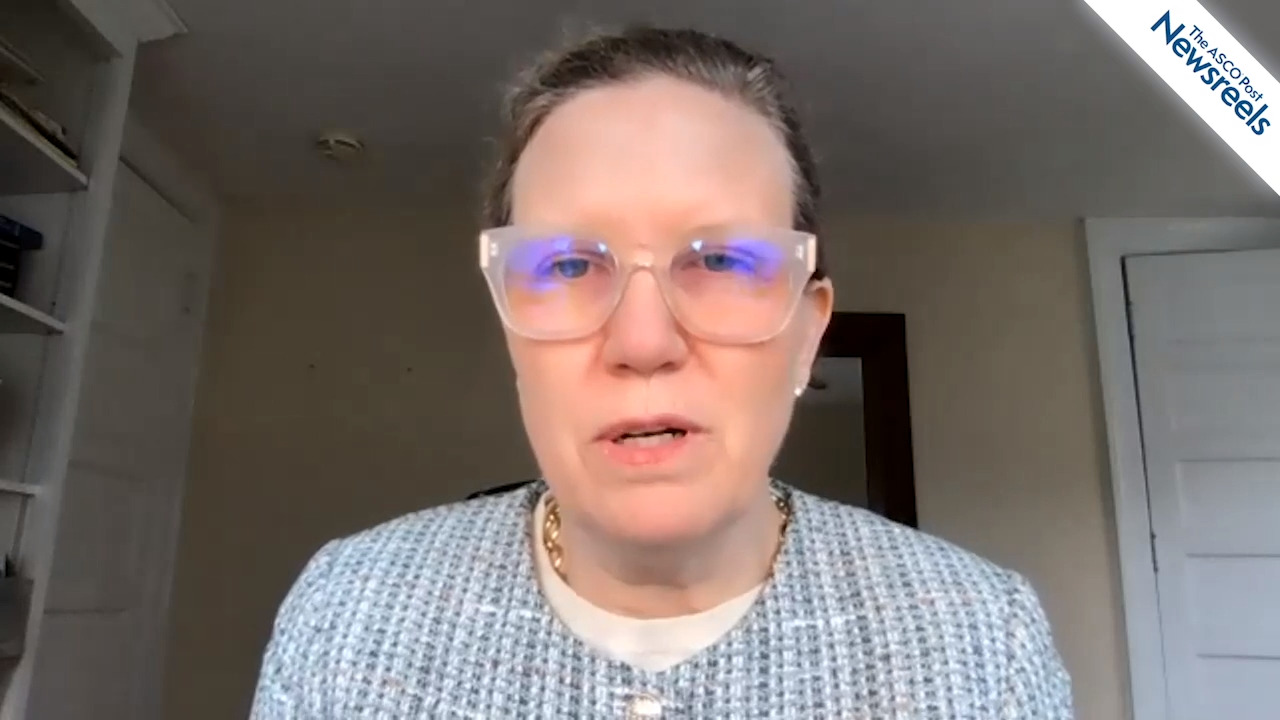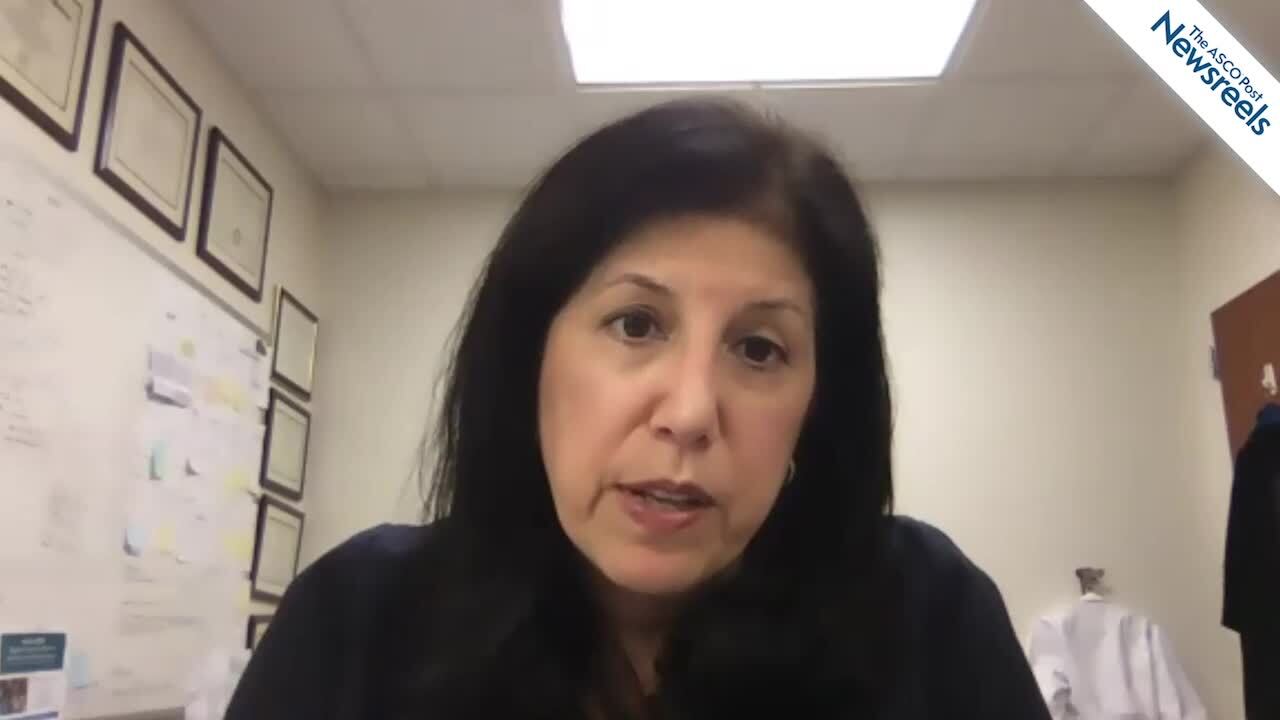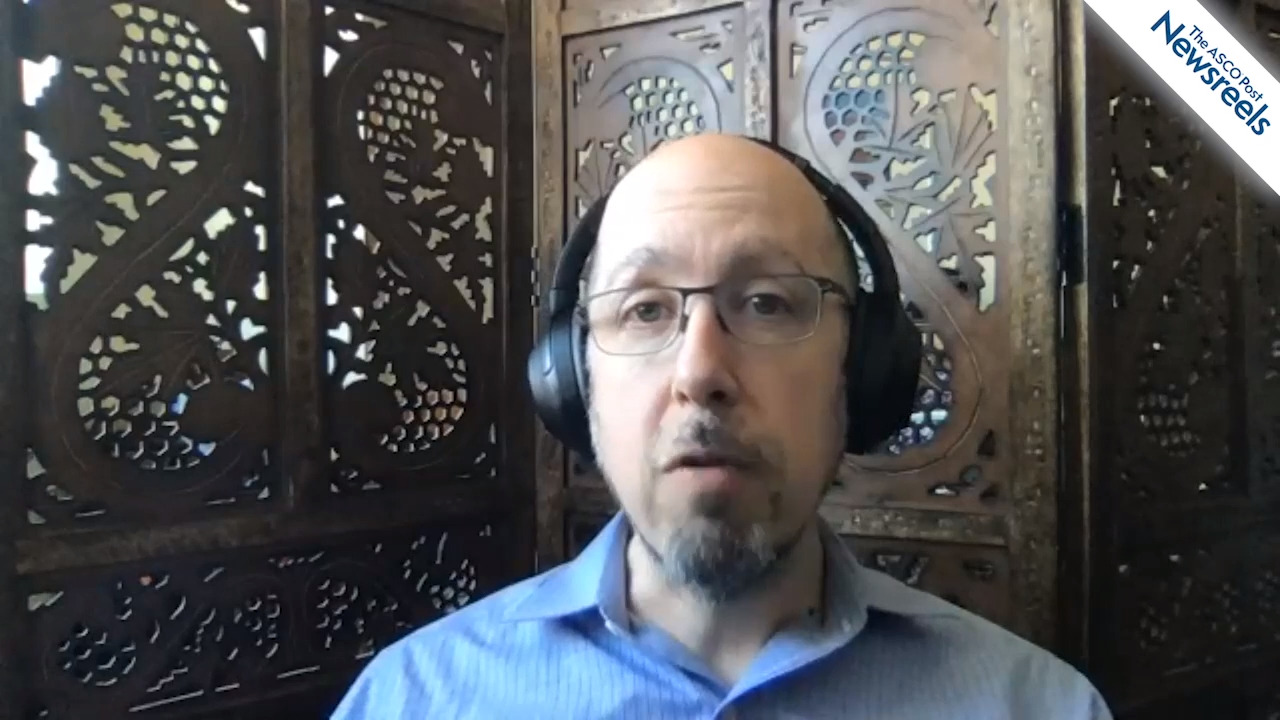Georgina V. Long, MD, PhD, on Melanoma: Nivolumab Plus Ipilimumab vs Nivolumab Alone
AACR Annual Meeting 2021
Georgina V. Long, MD, PhD, of the Melanoma Institute Australia, University of Sydney, discusses results of the CheckMate 915 trial, which may reinforce nivolumab as an adjuvant standard of care in patients with stage IIIB–D/IV melanoma, with or without complete lymphadenectomy (Abstract CT004).
The ASCO Post Staff
Richard S. Finn, MD, of UCLA Medical Center, discusses updated efficacy and safety data from the IMbrave150 trial of patients receiving atezolizumab plus bevacizumab vs sorafenib as first-line treatment for unresectable hepatocellular carcinoma (Abstract CT009).
The ASCO Post Staff
Charlotte E. Ariyan, MD, PhD, of Memorial Sloan Kettering Cancer Center, discusses improved outcomes with metastasectomy in the setting of checkpoint inhibitors, with the removal of residual disease and “escape” lesions. Surgical outcomes may also be better than targeted treatments, although long-term data and biomarkers are needed to confirm these findings.
The ASCO Post Staff
Linda T. Vahdat, MD, MBA, of Memorial Sloan Kettering Cancer Center, discusses results of a phase II trial designed to test the concept that targeting the tumor microenvironment by depleting copper may prevent metastases, essentially disrupting the infrastructure that contributes to tumor spread.
The ASCO Post Staff
Matthew J. Matasar, MD, of Memorial Sloan Kettering Cancer Center, discusses phase III results of the CHRONOS-3 trial, which showed that copanlisib plus rituximab led to a 48% reduction in the risk of disease progression or death compared with placebo plus rituximab in patients with relapsed indolent non-Hodgkin lymphoma (Abstract CT001).
The ASCO Post Staff
Vivek Subbiah, MD, of The University of Texas MD Anderson Cancer Center, discusses data on selpercatinib that showed promising activity across a variety of RET fusion–positive cancers, including treatment-refractory gastrointestinal malignancies. This analysis highlights the need for genomic profiling to identify actionable oncogenic drivers.





